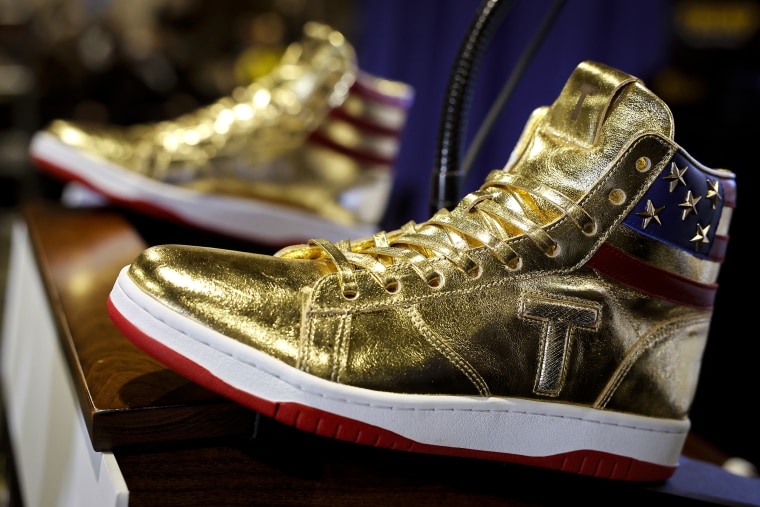In a surprising turn of events, former President Donald Trump’s recent foray into the world of commerce has sparked a flurry of discussions and debates among experts and political pundits. The decision by the Republican candidate to sell a range of products including Bibles, sneakers, and perfume as part of his fundraising efforts has raised eyebrows and drawn both criticism and praise.
One of the most prominent aspects of Trump’s strategy is the selling of Bibles, a move that has been described as unprecedented for a presidential candidate. While it is not unusual for candidates to sell merchandise to raise campaign funds, the choice of selling religious texts has stirred controversy. Critics argue that the move blurs the line between politics and religion and could be seen as exploiting faith for financial gain. On the other hand, supporters view it as a shrewd business move that resonates with Trump’s conservative base.
Similarly, the decision to sell sneakers, a popular item in the fashion industry, has been met with both skepticism and interest. Trump’s foray into the world of retail and consumer goods has been seen as a departure from the traditional playbook of political fundraising. The move has been lauded by some as a creative way to engage with younger voters and expand his reach beyond traditional political channels.
Finally, the introduction of perfume as part of Trump’s merchandise lineup has been met with diverse reactions. Some experts argue that the choice of selling perfume is a strategic marketing move aimed at broadening Trump’s appeal and tapping into the lucrative beauty and cosmetics market. Others, however, question the appropriateness of a presidential candidate selling beauty products and view it as a trivialization of the political process.
Overall, Trump’s decision to sell Bibles, sneakers, and perfume as part of his fundraising efforts has sparked a robust debate about the intersection of politics and commerce. While some experts view it as a savvy business move that sets him apart from traditional candidates, others see it as a controversial and potentially problematic strategy. As the 2024 presidential election approaches, it remains to be seen how Trump’s unconventional approach to fundraising will impact his campaign and the political landscape as a whole.
